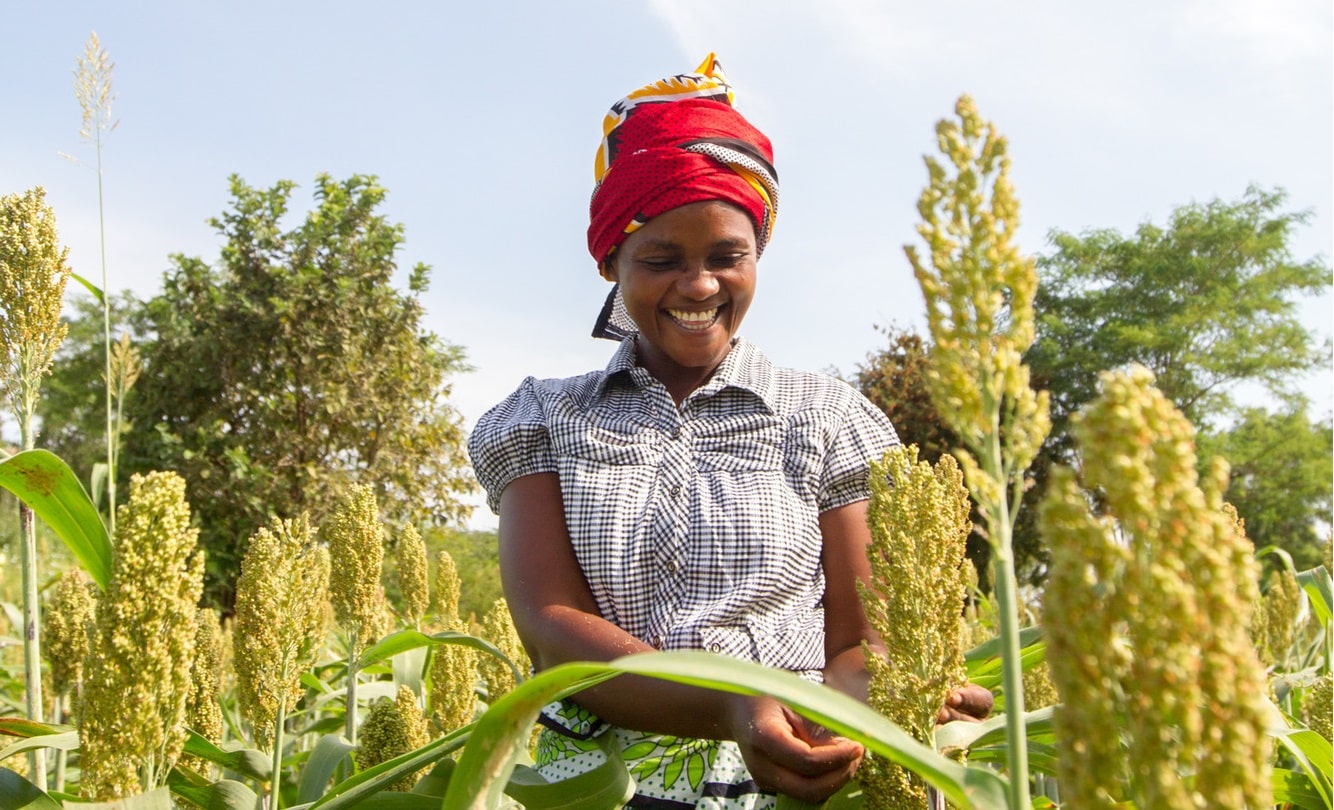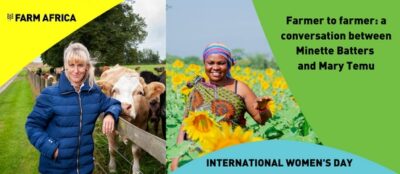News
Kenya
8 March 2021
Snapshot of women’s engagement in Farm Africa projects in Kenya

Photo: Farm Africa / Mwangi Kirubi
To mark International Women’s Day on 8 March, Farm Africa has published a snapshot summarising women’s participation in our projects in Kenya.
In 2020, more than half of the people Farm Africa supported in Kenya are women. A total of 52% of the 15,520 people reached in Kenya last year were female.
Farm Africa recognises that inclusive economic growth requires full participation of both women and men.
In Kenya, all our programmes strive to engage, empower and benefit both women and men by ensuring that their contribution is visible and valued and that they all have equal access to information, assets, services and opportunities.
Our programme activities aim at ensuring women are included, represented and fully able to participate.
Highlights of women’s participation in Farm Africa projects in Kenya in 2020 include:
Waitrose & Partners Foundation
- 45% of the 1,727 farm workers who accessed finance through the Okolea money-lending platform are women. Most of these loans have been used as capital injection into small businesses while some other households have used this to fund education needs.
- 46% of the 2,654 workers benefitting from feeding programmes are women. Self-reported feedback from workers indicated increased motivation and ability to be more productive in their output and daily deliverables.
- 51% of the 1,617 workers who benefitted from the green energy project (issuance of LPG cylinders and burner tops) are women. The initiative has improved worker households’ wellbeing through safe use of clean energy replacing traditional energy sources such as kerosene stoves and charcoal.
Farm Africa’s work with the Waitrose & Partners Foundation in Kenya is featured in an article published today in i news, reporting on how Waitrose & Partners improves the lives of the women in its supply chain.
In Kenya, Farm Africa and the Waitrose & Partners Foundation have established worker committees, which give workers a voice.
Tom Cadogan, Farm Africa Country Director for Kenya, commented: “Worker committees enable us to identify issues we might not know about.
“In Kenya, accessing finance and funding is hard in some remote areas which may not have financial literacy. Providing financial literacy training to help women, for example, is invaluable because it promotes independence, safety, and stability.”
Strengthening the aquaculture ecosystem in Kenya
- 64% of the 81 stakeholders directly engaged in aquaculture policy lobbying are women. The project has been able to push for women to be embedded in counties’ budget process, ensuring any issues pertaining to them are voiced in the sector.
- 54% of the 3,317 farmers trained on Global Good Agricultural Practices (GAP) for vegetable production are women. Acquisition of the Global GAP certification allows farmers to access export markets for their crops and consequently boost household incomes.
- 63% of the 154 Village-Based Advisors (VBAs) identified and trained on regenerative agriculture practices and supported in development of a business model for the service they offer are women. Through this business model, the VBAs have gained new income streams by linking farmers to quality input providers, aggregation, markets and other service providers.
Download Farm Africa’s Snapshot of women’s engagement in projects in Kenya.




